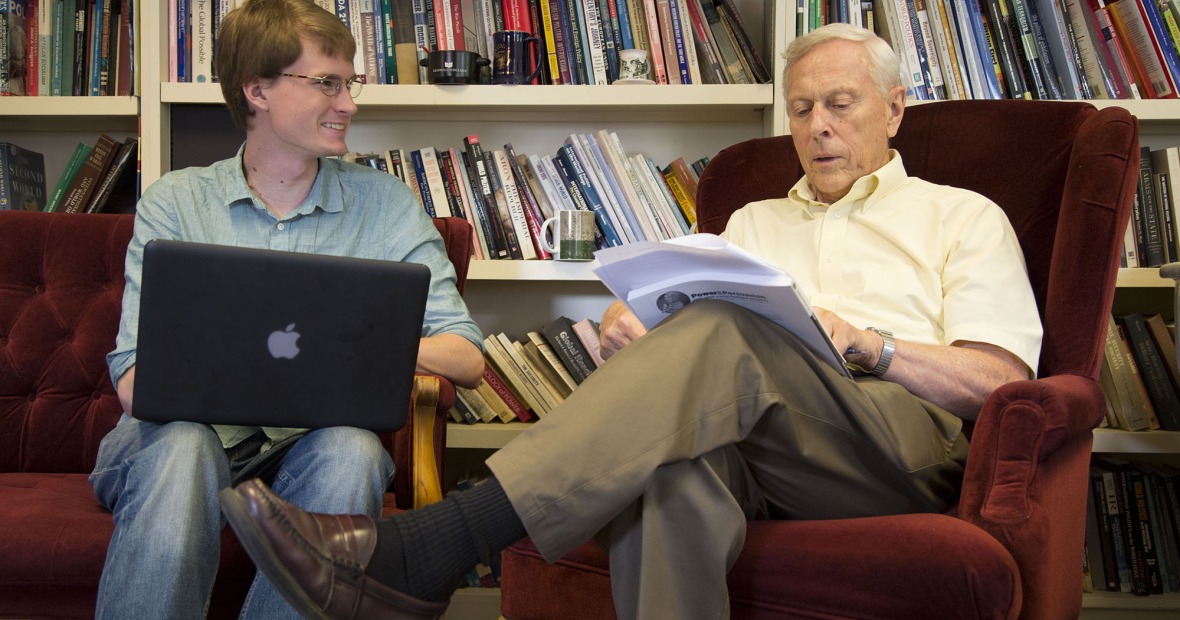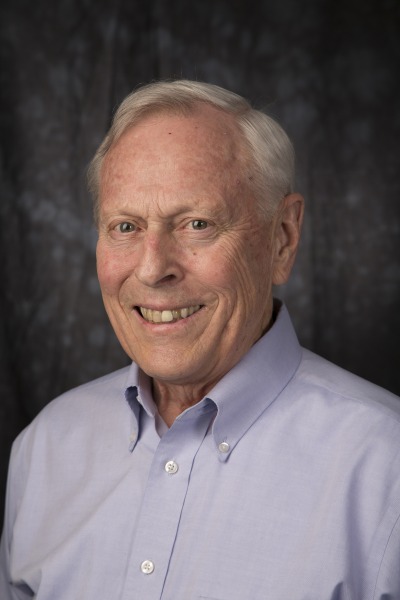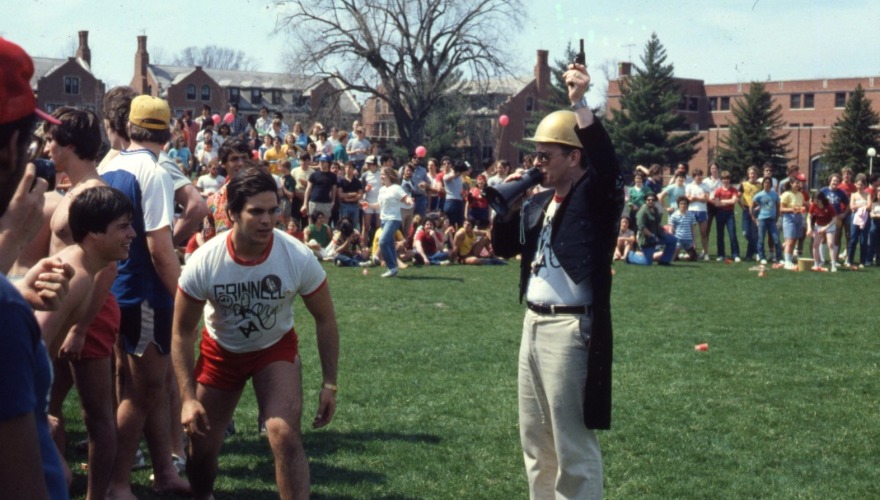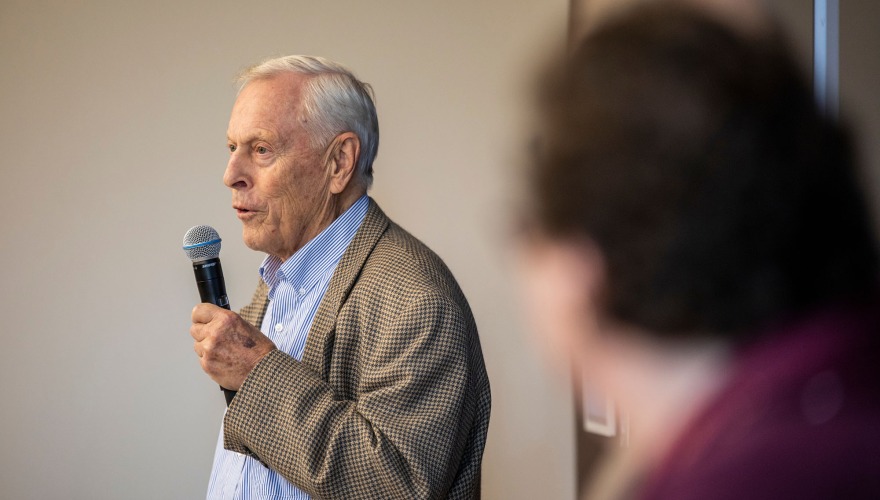Celebrating Wayne Moyer
In his 52 years at Grinnell College, Professor of Political Science Wayne Moyer has served with four generations of faculty members, seven college presidents, and thousands of Grinnell students.
In early May, the College held a reception to celebrate Moyer’s career as he retires from full-time teaching. Moyer plans to take a year of leave before returning to the College to begin his Senior Faculty Status.
Dedicated to Students
“Wayne’s impact on the College has been profound,” said Barb Trish, professor of political science and current director of the Rosenfield Program in Public Affairs, International Relations, and Human Rights. “Wayne has juggled teaching with a breathtaking away of array of commitments to his life as a scholar and to the institution.”
Moyer is best known for his 23 years at the helm of the Rosenfield Program. Under his leadership, the program brought some of the greatest minds and the most notable political figures of the late 20th century to campus for symposia. He also involved students, giving them opportunities to interact with important public figures and preparing them for a lifetime of civic engagement.
Moyer’s work has shaped the College for generations of students and faculty. He has served as department chair many times, as well as division chair, chair of the faculty, and the faculty chair of the Sesquicentennial Committee. Moyer was also part of a small group that created the policy studies concentration. And he is known statewide for his analysis of current political issues on Iowa Public Radio’s “River to River” talk show.
Embodying Grinnell
Greg Thielmann ’72, a career State Department officer, spoke of his visits to campus as part of the Rosenfield Program. “I, too, came to appreciate how lucky Grinnell was to reap the benefits of Wayne’s work.” He added, “Wayne has always helped us see the relevance of the past in understanding the present and glimpsing the future.”
Professor of Economics Bill Ferguson ’75 told Moyer, “In retrospect, I wish I had taken a course from you when I was a student. I do, however, remember the role you played at Grinnell Relays.”
Moyer helped create the Grinnell Relays tradition in 1973 as a celebration of spring and a spoof of more famous “relays” held at other Iowa institutions. This well-loved event brings students to Mac Field for a day of fun and often silly competition. Moyer traditionally wears a gold-painted helmet to start the relays.
Cookies and Croquet
Sara Booher ’25 also spoke at the reception for Moyer, her tutorial professor and adviser. “Professor Moyer is one of the people who was upheld as sort of the epitome of what you can hope to be part of your journey when you come here to Grinnell,” she said, adding that the tutorial, Climate Change: How Science, Ethics, and Politics Interact, was very important to her.
“This class really did shape a lot of my experience, and I attribute a lot of that to Professor Moyer’s teaching,” she said. “He built this great community of camaraderie and discourse and debate.”
Booher added, “He challenged me, my peers, to stretch our worldviews to analyze some of the most pressing issues in our world.”
The community Moyer built extended beyond the classroom. He invited the class to a cookout at his home near Rock Creek State Park. “He had prepared this amazing barbecue meal, with homemade pies, cookies — we all know Professor Moyer’s cookies are amazing,” Booher said. “It was a wonderful afternoon of conversation.
“And then he taught my classmates and me how to play croquet in the backyard. It was absolutely amazing,” she said.
“This is a memory I’ll always cherish, and it shines through as something that has absolutely defined my Grinnell experience,” Booher said. “Professor Moyer has been such a highlight of it. He’s someone who’s so dedicated to the successes of the students in the classroom and beyond. He creates this intellectual environment, encourages rigorous debate and the examination of multiple perspectives.”
Climate Change and Agriculture
Moyer himself concluded the program. “I’m looking forward to my next project. What I’m going to do is deal with climate change and agriculture,” he said. “I hope to continue working with students and hope to teach a tutorial or even a seminar on the subject.”
He added, “I want to thank all of you for coming out today. This is wonderful, undeserved, but I appreciate it very much.”




